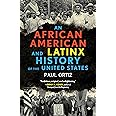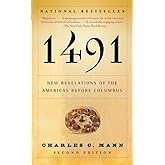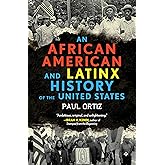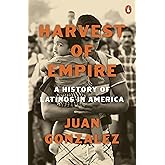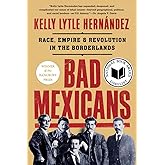
Enjoy fast, free delivery, exclusive deals, and award-winning movies & TV shows with Prime
Try Prime
and start saving today with fast, free delivery
Amazon Prime includes:
Fast, FREE Delivery is available to Prime members. To join, select "Try Amazon Prime and start saving today with Fast, FREE Delivery" below the Add to Cart button.
Amazon Prime members enjoy:- Cardmembers earn 5% Back at Amazon.com with a Prime Credit Card.
- Unlimited Free Two-Day Delivery
- Streaming of thousands of movies and TV shows with limited ads on Prime Video.
- A Kindle book to borrow for free each month - with no due dates
- Listen to over 2 million songs and hundreds of playlists
- Unlimited photo storage with anywhere access
Important: Your credit card will NOT be charged when you start your free trial or if you cancel during the trial period. If you're happy with Amazon Prime, do nothing. At the end of the free trial, your membership will automatically upgrade to a monthly membership.
Buy new:
-47% $11.72$11.72
Ships from: Amazon.com Sold by: Amazon.com
Save with Used - Good
$4.30$4.30
$3.99 delivery April 18 - 24
Ships from: Goodwill Southern California Sold by: Goodwill Southern California

Download the free Kindle app and start reading Kindle books instantly on your smartphone, tablet, or computer - no Kindle device required.
Read instantly on your browser with Kindle for Web.
Using your mobile phone camera - scan the code below and download the Kindle app.



 Audible sample
Audible sample Follow the author
OK
Open Veins of Latin America: Five Centuries of the Pillage of a Continent Paperback – January 1, 1997
Purchase options and add-ons
Tracing five centuries of exploitation in Latin America, a classic in the field, now in its twenty fifth year
Since its U.S. debut a quarter-century ago, this brilliant text has set a new standard for historical scholarship of Latin America. It is also an outstanding political economy, a social and cultural narrative of the highest quality, and perhaps the finest description of primitive capital accumulation since Marx.
Rather than chronology, geography, or political successions, Eduardo Galeano has organized the various facets of Latin American history according to the patterns of five centuries of exploitation. Thus he is concerned with gold and silver, cacao and cotton, rubber and coffee, fruit, hides and wool, petroleum, iron, nickel, manganese, copper, aluminum ore, nitrates, and tin. These are the veins which he traces through the body of the entire continent, up to the Rio Grande and throughout the Caribbean, and all the way to their open ends where they empty into the coffers of wealth in the United States and Europe.
Weaving fact and imagery into a rich tapestry, Galeano fuses scientific analysis with the passions of a plundered and suffering people. An immense gathering of materials is framed with a vigorous style that never falters in its command of themes. All readers interested in great historical, economic, political, and social writing will find a singular analytical achievement, and an overwhelming narrative that makes history speak, unforgettably.
This classic is now further honored by Isabel Allende’s inspiring introduction. Universally recognized as one of the most important writers of our time, Allende once again contributes her talents to literature, to political principles, and to enlightenment.
- Print length317 pages
- LanguageEnglish
- PublisherMonthly Review Press
- Publication dateJanuary 1, 1997
- Dimensions5.31 x 0.84 x 8.99 inches
- ISBN-100853459916
- ISBN-13978-0853459910
Book recommendations, author interviews, editors' picks, and more. Read it now
Frequently bought together

Customers who viewed this item also viewed
Editorial Reviews
Review
"This book is a monument in our Latin American history. It allows us to learn history, and we have to build on this history." ― Hugo Chávez, as reported by the BBC
"A superbly written, excellently translated, and powerfully persuasive expose which all students of Latin American and U.S. history must read." ― CHOICE, American Library Association
"I cannot recommend this book highly enough. Galeano’s vision is unswerving, surgical and yet immensely generous and humane. This book, written more than thirty years ago, contains profound lessons for contemporary India. Eduardo Galeano ought to be a household name in this country." ― Arundhati Roy
"A dazzling barrage of words and ideas." ― History
"Well written and passionately stated, this is an intellectually honest and valuable study." ― Library Journal
About the Author
Product details
- Publisher : Monthly Review Press; Anniversary edition (January 1, 1997)
- Language : English
- Paperback : 317 pages
- ISBN-10 : 0853459916
- ISBN-13 : 978-0853459910
- Item Weight : 1.1 pounds
- Dimensions : 5.31 x 0.84 x 8.99 inches
- Best Sellers Rank: #18,772 in Books (See Top 100 in Books)
- #5 in Environmental Economics (Books)
- #37 in Economic Conditions (Books)
- #50 in History & Theory of Politics
- Customer Reviews:
About the author

Eduardo Hughes Galeano (Spanish pronunciation: [eˈðwarðo ɣaleˈano]; 3 September 1940 – 13 April 2015) was a Uruguayan journalist, writer and novelist considered, among other things, "global soccer's pre-eminent man of letters" and "a literary giant of the Latin American left".
Galeano's best-known works are Las venas abiertas de América Latina (Open Veins of Latin America, 1971) and Memoria del fuego (Memory of Fire Trilogy, 1982–6). "I'm a writer," the author once said of himself, ""obsessed with remembering, with remembering the past of America and above all that of Latin America, intimate land condemned to amnesia."
Author Isabelle Allende, who said her copy of Galeano's book was one of the few items with which she fled Chile in 1973 after the military coup of Augusto Pinochet, called Open Veins of Latin America, "a mixture of meticulous detail, political conviction, poetic flair, and good storytelling."
Bio from Wikipedia, the free encyclopedia. Photo by Donostia Kultura [CC BY-SA 2.0 (http://creativecommons.org/licenses/by-sa/2.0)], via Wikimedia Commons.
Customer reviews
Customer Reviews, including Product Star Ratings help customers to learn more about the product and decide whether it is the right product for them.
To calculate the overall star rating and percentage breakdown by star, we don’t use a simple average. Instead, our system considers things like how recent a review is and if the reviewer bought the item on Amazon. It also analyzed reviews to verify trustworthiness.
Learn more how customers reviews work on AmazonCustomers say
Customers find this book an essential read that reads like a novel and provides an excellent account of the entire Latin American region's history. Moreover, the writing style is praised for its magnificent prose and excellent English translation, while the information quality is appreciated for its ability to synthesize a lot of information. Additionally, customers describe the book as eye-opening, interesting, and well worth the price. However, the emotional content receives mixed reactions, with some customers finding it painful to read.
AI-generated from the text of customer reviews
Customers find the book highly readable, describing it as a fantastic and essential read that reads like a novel.
"...He was a Uruguayan journalist, best-selling author, and one of the most prominent Latin American writers...." Read more
"...The author was well read, well informed and widely traveled (he passed just in 2015), and brings much authority to his work - having also lived..." Read more
"Masterpiece!!..." Read more
"A must read for anyone who needs to understand the colonialism, imperialism and resultant capitalist endeavors benefiting those other than Latin..." Read more
Customers appreciate the book's historical content, describing it as an excellent account of the entire Latin American region, with one customer highlighting its detailed explanation of centuries of exploitation.
"...journalist, best-selling author, and one of the most prominent Latin American writers...." Read more
"...The author was well read, well informed and widely traveled (he passed just in 2015), and brings much authority to his work - having also lived..." Read more
"...I doubt he ever read it. This book is packed border to border with facts, figures and accounts all duly documented with a bibliography nearly..." Read more
"...The book presents many established historical facts documenting the exploitation of Latin America by the western powers of Spain, Portugal, France,..." Read more
Customers praise the writing style of the book, noting its magnificent prose and excellent English translation, making it easier to understand the contents.
"...many recent developments are missing, but it is still the most comprehensive account of the systemic plunder of a whole continent I have found so..." Read more
"...The tennet of the book is pretty straight forward - that the latin americas and south america have been sacked by rampant capitalism which has..." Read more
"Terrific history from Cortes to the 1900's. Book is very well written and keeps you interested...." Read more
"...It provides a clear and concise view of why these countries have been afflicted by poverty, foreign intervention and special interest." Read more
Customers find the book eye-opening and fascinating, with one customer noting it provides a comprehensive look at the continent's development.
"...This book widened my liberal education. Free trade is a euphemism, for example...." Read more
"...Quite revealing of world history and provides the background for how we got into some of the mess that we are in." Read more
"...What really happened is far uglier and provides a better view into how we can do better moving forward. We shouldn't fear the truth or sanitize it...." Read more
"...This book has helped me understand the social, and class struggle of the group movements who seek to re-establish equality for the NATIVE people..." Read more
Customers praise the book's ability to synthesize information and serve as a good introduction, with one customer noting how it explains the interconnectedness of economies and histories.
"...the integrated whole of the Americas and how our economies and histories are more interconnected over a larger geography–North and South...." Read more
"...How one man could put together, assemble such a wealth of information, in one book of 300 pages is mind-boggling...." Read more
"...I found the work a bit narrow but a good start to an important discussion." Read more
"...When you finish the book, you will have good understand of how our global economy works and at times get an idea of why war happens...." Read more
Customers find the book very interesting, with one customer noting how the author weaves the narrative into a compelling story.
"...These reservations aside, Galeano is a gifted story-teller who can turn a phrase, and if he is a dangerous radical, then so is the Pope. ###" Read more
"...The book tells in excruciating detail of the voracious plunder of the Global South (including the African slave trade) by European countries, and..." Read more
"...Book is very well written and keeps you interested...." Read more
"...The subject was interesting and very informative. I learned a whole different side of the struggles of all countries "Latin"." Read more
Customers find the book valuable, with one describing it as a collection of economic masterpieces.
"It's one of the handful of economic masterpieces of our times...." Read more
"...Yes, there were social classes in Mesoamerica but there was no poverty, no social stratification, no hunger, nor poverty." Read more
"...American history, like myself, its a challenging read; but its well worth it...." Read more
"...It is the best account I know of the depredations of Latin America by its various colonizers, especially Spain...." Read more
Customers have mixed reactions to the emotional content of the book, with some finding it painful and an eye-opener of a sad story, while others describe it as uncomfortable to read.
"This book will make you mad, it will make you sad and it will open your eyes as to why America is so powerful while the rest of the Americas to the..." Read more
"...is a record of power tripping, arrogance, ruthlessness, and utter lack of compassion, all the worst elements of human nature, as they play out on a..." Read more
"...riches(those left) wonderful people,, diversity and most of all passion and heart." Read more
"...This is not comfortable reading, but it is a valuable primer on a the much neglected history of Latin America. Galeano's prose sings." Read more
Reviews with images
Good source of information
Top reviews from the United States
There was a problem filtering reviews. Please reload the page.
- Reviewed in the United States on November 13, 2015Eduardo Galeano died in April, 2015. He was a Uruguayan journalist, best-selling author, and one of the most prominent Latin American writers. This book about the last five centuries of Latin American history focuses on the genocide, abuse and exploitation that started with the Spanish conquistadors and colonization. It continued with foreign economic domination of the banana republics and the brutal dictators -- many imposed and supported by the CIA -- during the twentieth century. Open Veins of Latin America was initially banned in several Latin American nations, including Uruguay.
Galeano’s thesis is that Latin America, “has specialized in losing ever since those remote times when Renaissance Europeans ventured across the ocean and buried their teeth in the throats of the Indian civilizations. Centuries passed, and Latin America perfected its role…our region still works as a menial…Latin America is the region of open veins. Everything, from the discovery until our times, has always been transmuted into European – and later United States – capital, and as such has accumulated in distant centers of power…The history of Latin America’s underdevelopment is an integral part of world capitalism’s development.”
The pre-Columbian population of the Americas totaled no less than 70 million when the foreign conquerors arrived. A century and half later, they had been reduced to 3.5 million, just five percent of the original number. It was a virtual death sentence for millions of indigenous peoples who were forced to work in the mines, clawing out gold, silver, and other metals for shipment to Europe. When there weren’t enough Indian slaves, millions of Africans were imported to work the mines and plantations. The African death rate in Latin America was far higher than in the United States.
Pope Francis, the first Latin American Pope, apologized for his Church’s role in the colonial invasion of the Western Hemisphere and the violent subjugation of its indigenous inhabitants. “Many grave sins were committed against the Native people of America in the name of God,” Pope Francis said. “I humbly ask for forgiveness, not only for the offense of the church itself, but also for crimes committed against the native peoples during the so-called conquest of America.”
The Pope’s critique of capitalism echoes Galeano’s. It is said that Pope Francis has embraced liberation theology, which led Christian resistance to the right-wing regimes in Latin America during the 1970s and 80s. The Pope calls upon us to rethink capitalism, indicting the global economic system with its “deified market” that vastly enriches a few while leaving billions behind in misery. Galeano asserts that the economic system is Latin America has almost always enriched a few while leaving the masses in abject poverty. In short, Francis and Galeano are singing from the same hymnal.
One fascinating event Galeano describes is how in 1864, Paraguay was invaded in “a war of extermination which was the most infamous chapter in South American history.” The government of Paraguay had been the most progressive in Latin America, fomenting internal development using protectionism and without foreign investment. Britain encouraged Brazil, Argentina and Uruguay to invade their neighbor. The war lasted five years, killed more than 80 percent of the Paraguayan population, and led to the annexation of large parts of the country by Brazil and Argentina.
Though formal colonization had ended in Latin America, foreign domination did not. U.S. President William H. Taft said in 1912 that the correct path in foreign policy “may well be made to include active intervention to secure for our merchandise and our capitalists opportunity for profitable investment.”
Looking at just tiny Panama, American troops intervened there twenty times, most recently in the invasion of 1989. The US occupied Haiti for twenty years. Marine General Smedley D. Butler, who had led many military expeditions south of the border, said in 1935 that, “I spent my time being a high-class muscle man for Big Business, for Wall Street, and for the bankers. In short, I was a racketeer for capitalism.”
When Latin Americans resisted brutal oligarchies, the US typically backed the generals, such as the notorious Anastasio Somoza in Nicaragua, who ruled from 1932-1944. The US overthrew the democratically elected reform government in Guatamala in 1954, and this led to 15 years of violence.
Economic development in Latin America, Galeano writes, has been held back by producing only certain crops, such as bananas, sugar cane, and coffee, by the lack of agrarian reform and by dependence on Britain or the US. His heroes are the land reformers, who inevitably faced foreign opposition and reversal of reform, such as the liberator Simon Bolivar, Jose Arrigas in Argentina, and Emiliano Zapata in Mexico. Both the US and Britain long used tariffs to protect their infant industries from foreign competition, while pressuring Latin America to lower it tariffs for British or American goods. In other words, do as I say, not as I do.
Several chapters in the book are devoted to the Twentieth Century, focusing on the American desire for oil, iron ore, copper and other metals. Latin Americans got little of the benefit from the sale of their natural resources -- workers got very low pay, and the governments typically got modest tax revenues or concession payments – while the profits went to the multinational corporation that controlled the process. Dictators “hawked the country to foreign capitalists as a pimp offers a woman.” In this way, countries rich in natural resources remained poor. “What Latin America sells gets constantly cheaper and what is buys gets constantly dearer.” Thus economic inequality grows.
If there were any benefits to Latin Americans from economic domination, other than for a few oligarchs, Galeano does not mention them. He does not acknowledge the improvements in Latin American living standards and life expectancy that have occurred despite the obstacles, though it is true Latin America remains relatively poorer than North America.
Some readers will take exception to Galeano’s sympathy for Castro, and may be uncomfortable with the forward by Isabel Allende, who describes how the democratically elected president of Chile – Salvador Allende -- was overthrown by the CIA in 1973, installing General Pinochet and his long and brutal reign.
These reservations aside, Galeano is a gifted story-teller who can turn a phrase, and if he is a dangerous radical, then so is the Pope. ###
- Reviewed in the United States on February 4, 2018Eduardo Galeano may not be so well known among readers in general, but they would be well advised to make his acquaintance. This book was published around 1970, but the lessons it imparts about how the more "advanced" nations, for over 5 centuries, have at least in part achieved their status and standard of living - much to the detriment of the native populations of the "Global South" - are just as important (and perhaps even more so) to know and study today, nearly 50 years later. Most of the sad story that the author tells has only gotten sadder still in the intervening years, albeit with some hopeful changes along the way. The author was well read, well informed and widely traveled (he passed just in 2015), and brings much authority to his work - having also lived through many difficulties in his native home himself. The book covers a vast expanse of time and geography, and it can be hard to keep a focus because of this. It also unrelentingly hammers away at the explicit violence done to the peoples of these lands, which makes it difficult to read. But it must be read, in order to at least begin to correct the myopia which afflicts modern Westerners in regard to their cherished "way of life". The history of the last 500 years in Latin America (Galeano defines that region as being from the Rio Grande south to the Tierra del Fuego), is portrayed by the author as a period of almost universal exploitation and denial of freedoms, with only brief bright spots of attempts at self-determination. The book tells in excruciating detail of the voracious plunder of the Global South (including the African slave trade) by European countries, and then the U.S. and other advancing economies, as they ruthlessly expropriated valuable natural resources for their own advantage, but not for that of the local populations they decimated - except those who collaborated with and enabled the invaders. No one can speak of human rights, or of development of a true human family, or even about strategies to attempt to mitigate climate change, without acknowledging and opposing the disgraceful treatment of a vast portion of that human family, all for the vain worship of material gods and golden calves. You don't need to look beyond the widely exposed machinations of the "1%" currently in the media to see the depravity of these attitudes, but this intense work will illuminate you as to just how deep the roots of economic exploitation actually are.
Top reviews from other countries
 Armin KolbReviewed in Germany on May 29, 2013
Armin KolbReviewed in Germany on May 29, 20135.0 out of 5 stars Geschichte der Ausbeutung Lateinamerikas - nach wie vor aktuell
Galleano tells the story of the exploitation on Latin America since the discovery by Christopher Columbus up to the 1970s. The edition is a reedition of the book of 1972. Nethertheless it is actual and makes the reader understand what happens to this continent.
 Mychelle VincentReviewed in Italy on November 14, 2020
Mychelle VincentReviewed in Italy on November 14, 20205.0 out of 5 stars Absolutely Necessary Read
My only complaint is that since this book was published in the early 1970s no one has created an updated version. This book is horrifying and upsetting, you will never see certain industries and countries the same again. I think it is absolutely vital that everyone read this book.
 GraemeReviewed in Spain on May 12, 2019
GraemeReviewed in Spain on May 12, 20195.0 out of 5 stars Amazing Book
One of the best books iv every read, an amazing journey through the history of South America
 Raquel Soto SanchezReviewed in Japan on July 14, 2021
Raquel Soto SanchezReviewed in Japan on July 14, 20215.0 out of 5 stars Perfect condition!
New, perfect condition!
 AlDimoReviewed in Australia on September 16, 2015
AlDimoReviewed in Australia on September 16, 20153.0 out of 5 stars Three Stars
OK








